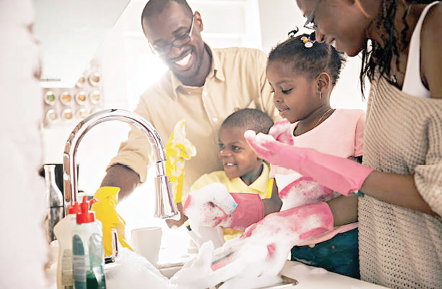When another child takes role of firstborn, parent

Growing up, Allan Mwangi was happy to have an elder brother who could take all the blame for his mischiefs and took care of him and his younger siblings when his parents were busy, or away. But something changed when they grew up.
“My elder brother became an alcoholic and that left me shouldering the burdens of the family, with the little pay I was getting. He had a family, and sometimes I had to chip in and assist his wife,” he narrates.
In many families, the older sibling is expected to act responsibly and give directions and guidance to the younger siblings. Firstborn sons of single mother act as the ‘man of the house.’
But sometimes, this is not the case. Situations where middle and last born children are stepping in the role of firstborns are becoming more and more common. For Allan, this role has become a thorn in the flesh and a burden to him.
Substitute parent and spouse
“I don’t know how to tell my family that this is a burden to me. I had plans to do a lot with what I earn, but I can’t since I have to take care of the entire house and my brother doesn’t seem to want to get his life in order. I’m just tired,” he laments.
Faith Gichanga, a counselling and organisational psychologist at Bliss or Blisters has noticed this phenomenon, especially from most of her clients. A third of her clients are not firsborns by birth order, but share similar roles and psychological challenges as first borns.
“It was clear to me that it is a demographic too large to not be addressed. Surrogate first born is therefore a term I coined to describe children who are not first born by birth order, but psychologically assume that role in their families. It could be any other child such as the second born or further down the line, including last born, especially if the age gap between the last born and the older siblings is significant,” she explains.
Faith gives examples of some of the ways through which this happens. “Parentification means that these surrogate firstborns act like substitute parents to their siblings, always trying to ensure that their basic needs are met, family conflicts are resolved, morals are upheld, among other. Parentification may also be towards a parent, especially if the parent needs special care such as is sickly or is/ was a victim of gender based violence. In this case we can call it spousification, whereby the child is expected to take up the role of a spouse to either parent in order to meet the emotional needs of that parent. Ever heard someone say, “my 10-year-old son has been my pillar through the grief after losing my husband – he always knows what to say and do when she notices I am feeling sad?” she explains.
Faith adds that the impact is, especially significant in adult life. “The most common complaint I hear in the therapy room among this demographic is that, “I am emotionally tired,” followed by a loud sigh,” she observes.
Challenges of carrying burden
For Allan, he feels taken for granted by his family despite the fact that he shoulders all the responsibilities in the house.
The expert says despite feeling taken for granted, these children continue rescuing their siblings and the family at large from the never ending financial or social situations out of obligation.
“Surrogate firstborns also experience anxiety over the wellbeing of the other family members, especially those that refuse to take responsibility of their lives as adults.
Economically, they feel stretched. While they themselves are hardworking, their income is spread thin trying to meet every other family member’s needs. They deny themselves self-care activities such as much-needed vacations or other luxuries for the sake of the family,” explains Faith.
Faith cautions parents against assigning their roles to their children. She shares how parents need to constantly check their behaviour and intentions to ensure that they don’t subconsciously over burden their them.
“When assigning children responsibilities, such as baby sitting, it needs to be clear that it is a temporary task rather than the notion that it is always their responsibility to look after younger siblings,” she recommends.
Way forward
“Parents need to stop depending on children for emotional support. Go for therapy or seek out your peers who have the emotional maturity to handle adult emotions, since children are not. Sometimes it is the child who shows the desire to support a parent emotionally, in which case, then the parent needs to discourage it and remind the child to be a child,” she says.
She adds that parents should also resist the urge to drag children into adult problems such as marital arguments, bills, grief among others. When it comes to the surrogate firstborns, Faith advices them to establish healthy boundaries, the first one being the realisation that everyone’s wellbeing is not their responsibility.
“There is nothing wrong with giving. Boundaries are important in differentiating between altruistic giving, which is healthy and sustainable, versus rescuing others from a place of guilt, which breeds resentment in the long run.,” she says.
Secondly, Faith urges these children to learn how not to inherit other siblings’ problems as their own. For example, if a sibling is having problems in their marriage – the surrogate firstborn can help, but not take up the matter in their own hands such as confronting the sibling’s spouse on behalf of that sibling.
“Realise that people are resilient than what you give them credit for. Your siblings will survive with or without your involvement in their lives. In any case, rescuing family members enables lack of motivation to do things differently on their part to improve their situation. The seemingly good gesture of always rescuing them actually ends up clipping their wings,” she says in ending.












